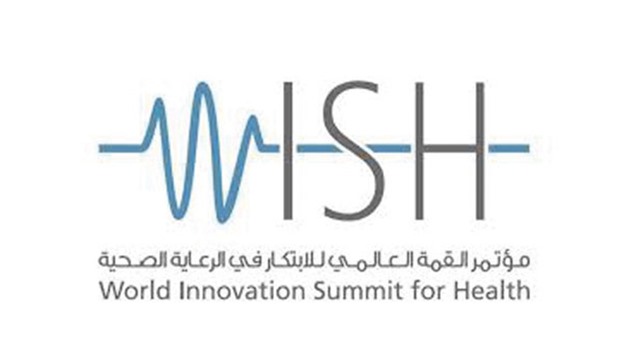World Innovation Summit for Health (WISH) 2018 will have nine forums and each one will present a report that tackles a pressing global healthcare challenge, it has been announced.
The nine forums are as follows: Anxiety and depression', Data science and artificial intelligence, Design in health, Eye health, Healthcare in conflict settings, Islamic ethics and palliative care, Nursing and universal health coverage, Role of private sector in healthcare and Viral hepatitis.
Each forum topic is chaired by a world-leading expert and supported by a team of senior leaders from academia, research, industry and policy.
The Anxiety and depression forum led by Paul Farmer, chief executive of Mind, a leading mental health charity working in England and Wales, will clearly define the terms anxiety and depression, investigate the scale of the issue, and then look at what can be done to prevent anxiety and depression taking hold of people.
The Data science and artificial intelligence forum chaired by Prof Aziz Sheikh, director of the Usher Institute of Population Health Sciences and Informatics at the University of Edinburgh, sets out a path of increasing data-enablement that health systems might follow, with case studies outlining how individual systems have addressed some of the challenges.
The WISH forum on Design in health covers the areas of describing models and methods of design; application of design to infectious disease, non-communicable disease, and access to care; and recommendations for implementing design. It is chaired by Aaron Sklar, co-founder of Prescribe Design and vice-president of Brand Experience at Giant Creative Strategy.
The Eye health forum, chaired by Prof Peng Khaw, director of the National Institute for Health Research Biomedical Research Centre in Ophthalmology at Moorfields Eye Hospital, highlights strategies and programmes that have been used to reduce the burden of eye disease through service delivery, education and training. It also highlights recent technological developments impacting eye health, and explore some emerging technologies that have the potential to impact eye health in the future.
The Healthcare in conflict settings forum report is on healthcare for conflict affected populations with the central question of how to achieve universal healthcare provision for such populations. Mukesh Kapila, professor of Global Health and Humanitarian Affairs at the University of Manchester, heads this forum.
The WISH forum on Islamic ethics and palliative care will provide an overview of the practice of palliative care in Qatar and the Arabian Gulf and compares it to the Western context. Dr Mohamed Ghaly, professor of Islam and Biomedical Ethics at the Research Centre for Islamic Legislation & Ethics at Hamad Bin Khalifa University, is heading the forum.
The report on Nursing and universal healthcare describes how strengthening nursing and midwifery as part of the wider health workforce will enable the rapid, high-quality and cost-effective scaling up of universal health coverage and Lord Nigel Crisp an independent crossbench member of the House of Lords, UK is spearheading the forum.
The report on the Role of the private sector in healthcare discusses how to create more effective, mass-scale collaborations between public and private sector for the delivery of healthcare services needed for universal healthcare. It is headed by David Nicholson, who provides advice and guidance to both governments and individual organisations interested in improving health and healthcare.
The Viral hepatitis forum focuses on high-level inputs critical to achieving hepatitis C elimination by 2030 and proposes an investment case providing recommendations on how governments and global donors can maximise their investments to achieve viral hepatitis elimination. Margaret Hellard, deputy director of the Burnet Institute, is the chair of the forum.


